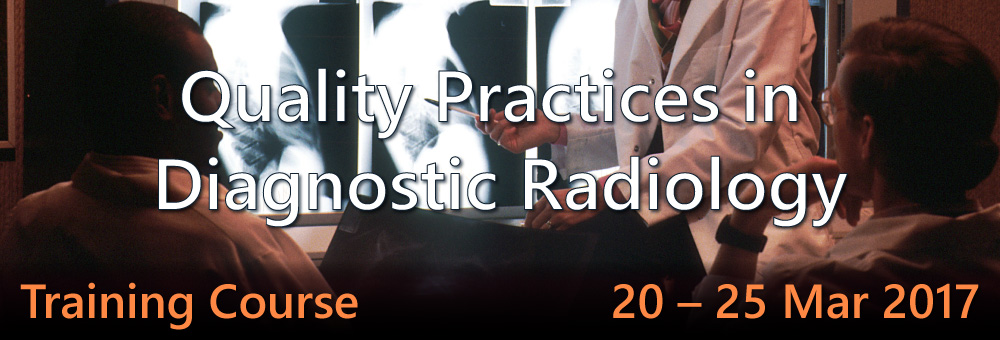Regional Training Course: Introduction to Quality Practices in Diagnostic Radiology for Radiographers and Radiological Technologists
| Date: | 20 – 25 March 2017 |
| Location: | MD Anderson Cancer Center, Houston, TX, USA |
| Language: | English |
Deadline for Nominations: 20 January 2017
Purpose
The overall objective of this course is to review the knowledge and practical strategies of radiology technologists (radiographers) on quality assurance and quality control that support the methods and technique for image optimization and the radiation protection of their patients and coworkers in diagnostic imaging.
It will be a review of basic principles of imaging technology and conventional diagnostic imaging equipment and fluoroscopy, biological effects, of the quality criteria developed to optimize procedures to achieve good quality images with minimum exposure and will seek to strengthen the capacity to implement the fundamental principles of occupational and patient radiation safety in to conventional diagnostic radiology and interventional procedures, including quality control.
To achieve this, participants will review the basic principles of X-ray imaging technologies, risks and benefits of X-ray exposure in this context, and basic radiation safety principles and standards. Quality assurance will be addressed as an essential component to improve and maintain the optimum quality of the images for clinical diagnostic purposes and the level of safety of radiology installations ofany size and technological complexity to its patients and employees.
Expected Outputs
It is expected that participants will become aware of the need to establish regular quality control practices in their departments, while at the same time gaining knowledge on the process of conducting them in a highly professional manner.
Scope and Nature
The course will be structured in a modular format and will consist of both lectures and hands-on training focusing on:
- Basic principles for radiation protection and safety.
- Fundamental principles of imaging.
- Image quality characteristics and evaluation.
- Radiation dose evaluation.
Background Information
According to the International Basic Safety Standards, Quality Assurance and Quality Control practices should be an integral part of any quality system in Diagnostic Imaging and Clinically Qualified Medical Physicists are the competent professionals, responsible for these practices. However, there is a significant lack of Clinically Qualified Medical Physicists working in Diagnostic Radiology, as also discussed during the first RAS6081 workshop, organized in Thailand.
Especially in some countries (where the lack of medical physicists in imaging is more apparent) imaging equipment is often left completely unattended for long periods, and some kind of performance evaluation only takes place during inspections for licencing purposes.
Although this can be, to some extent, justified by the large numbers of radiology equipment, the need for system monitoring and performance evaluation still remains. As an interim solution, simple QC methodologies and “front-line” tests should be performed. These tests should require minimum testing equipment and should be easily performed on a regular basis by a radiographer. The need to train radiographers on such quality practices has been also identified as a priority in the first RAS6081 workshop, Developing a quality framework to enhance patient care in Diagnostic Radiology (Bangkok, Thailand, Oct 3–11, 2016).
